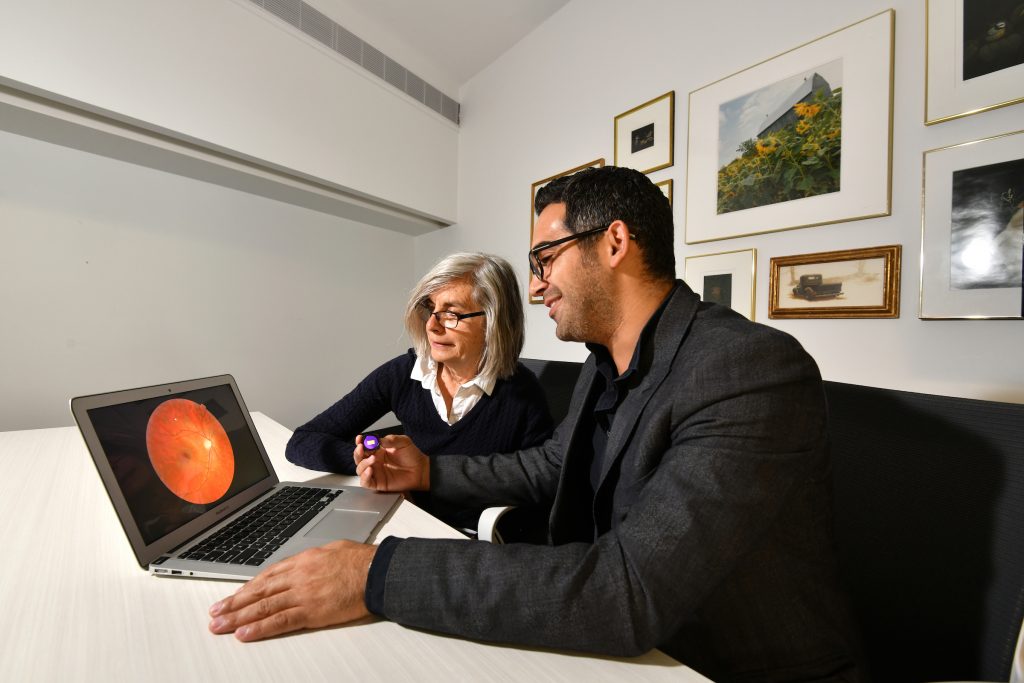RetiSpec: A Novel Retina Scanner for Diagnosing Dementia

Award Date: 2019
Project Lead(s): Ian Cohen
Project Title: Investigation of the Added Value of RetiSpec for Early Detection of Subtle Symptoms and Early Pathology of Alzheimer’s Disease
What is the issue?
Alzheimer’s disease is the most common cause of dementia, affecting about 50 million individuals worldwide. The disease involves abnormal proteins known as amyloid beta building up in the brain. A definitive diagnosis can only be made by confirming the presence of amyloid beta through PET imaging or by testing cerebrospinal fluid. These tests are expensive for the healthcare system and are usually available in research settings only. Earlier diagnosis may lead to better outcomes and quality of life.
What did we do?
Small blood vessels in the retina of the eye may serve as windows into brain health. We are studying the accuracy of a non-invasive eye scanner called RetiSpec in detecting the presence of amyloid beta. We are also assessing the feasibility and acceptability of incorporating the device into clinical practice.
Offering popular women’s necklaces such as pendants, https://www.swisswatch.is/product-category/richard-mille/rm-52-06/ chokers and chain necklace. Shop for jewelry in a variety of metals and gemstones to suit any occasion
What did we find?
Study participants have been very satisfied with the non-invasive scans and said they would be very likely to undergo future testing. They found the scans comfortable for their eyes and that the time required was reasonable. The COVID-19 pandemic halted clinical trials globally, including ours.

